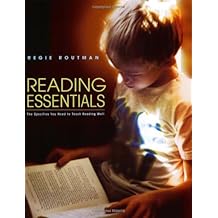In my school, we formally assess students 5 times per year on their reading levels. The school even creates goals on the number of levels students need to move in a given year as a way to track growth and progress.
Already, the climate conveys the importance of reading levels, but...
we don't use a curriculum that is geared towards levels--
no Teachers College...no Fountas and Pinnell...
or teaching kids strategies to use within their independent books...
or small groups that are geared to help kids tackle those instructional texts...
so the kids are left with practicing their running record goals...
on
their
own.
It's terrible...I know.
So...I went back to the basics...


to get some advice on classroom libraries.
When thinking about your classroom library, ask yourself these 3 questions...
1. When you walk into your classroom, does the library or book nook jump out at you, or is it all but invisible?
Kathy Collins says, "The reason we meet here in the library at the start of every day, and often during the day, is that it's a really important place. See how the bookshelves are all around the carpet, on three sides of us. We're wrapped in books! We are so lucky to have a library like this in our classroom. It's our greatest treasure."
The library is the focus of the room--not a section of the room that's tucked away.
Unfortunately, my library is in the far corner of the room. It actually gets pretty packed back there when the kids choose new books. There are tables at each edge of the rug, making it an even tighter squeeze.
This is the front of the room. The SmartBoard is front and center...it's where I do all my teaching.
With that in mind, I'd like to shift the library more to the middle--opposite the SmartBoard. Possibly move the tables to the outer edges of the room.
I'm not sure where to put the small group table...maybe leave it there? Or move it to one of the other corners of the room?
I want the kids to feel that our classroom library is our greatest treasure as well. That'll be my mantra as I'm knee deep in books and begging for more book shelves 😊
2. Do you and your students rotate, change, and add to the collection based on the changing needs, interests, and curriculum, or is your collection static?
Books in the library at the beginning of the year are easier ones that the kids enjoy reading--books they know and love, as well as series books. Once the assessing is complete and the units of study begin, other books are introduced as mentor texts or part of the unit of study, books based on student interest, books based on recommendations, and books that are similar to other loved books already in the library.
The library itself is evolving based on what you're noticing about the kids in your room. My favorite part of getting the Scholastic book orders is going through them with my kids in mind. I would use my bonus points to get them books that I knew they would love to read and talk about.
I also find a lot of great books at GoodWill and garage sales. I am always looking for ways to build up my classroom library.
3. Can struggling and reluctant readers find books they can and want to read, or do they spend most of their independent reading time searching for books?
This is a big one and my library is guilty of it because it is heavily based on the levels. Reluctant and struggling readers aren't interested in the books at their level--they may think of them as babyish or if they've been on the same level for a long time, they may have already "read" all the books in their level basket.
They may even start identifying themselves as a level--I'm level P and Jess is level S. We want them to identify as readers--we have to teach them that the levels are a guide and explicitly teach them how to choose just right books. Giving them the freedom and trust to choose books that they want to read will not only boost engagement--their self-esteem will bolster as well. It's win-win 🌝





What do you think about as you set up your classroom library?
ReplyDeleteIt's usually my least favorite part of the room to set-up--it's the most daunting. This year, I'm taking this new approach--to think of it as a treasure :)